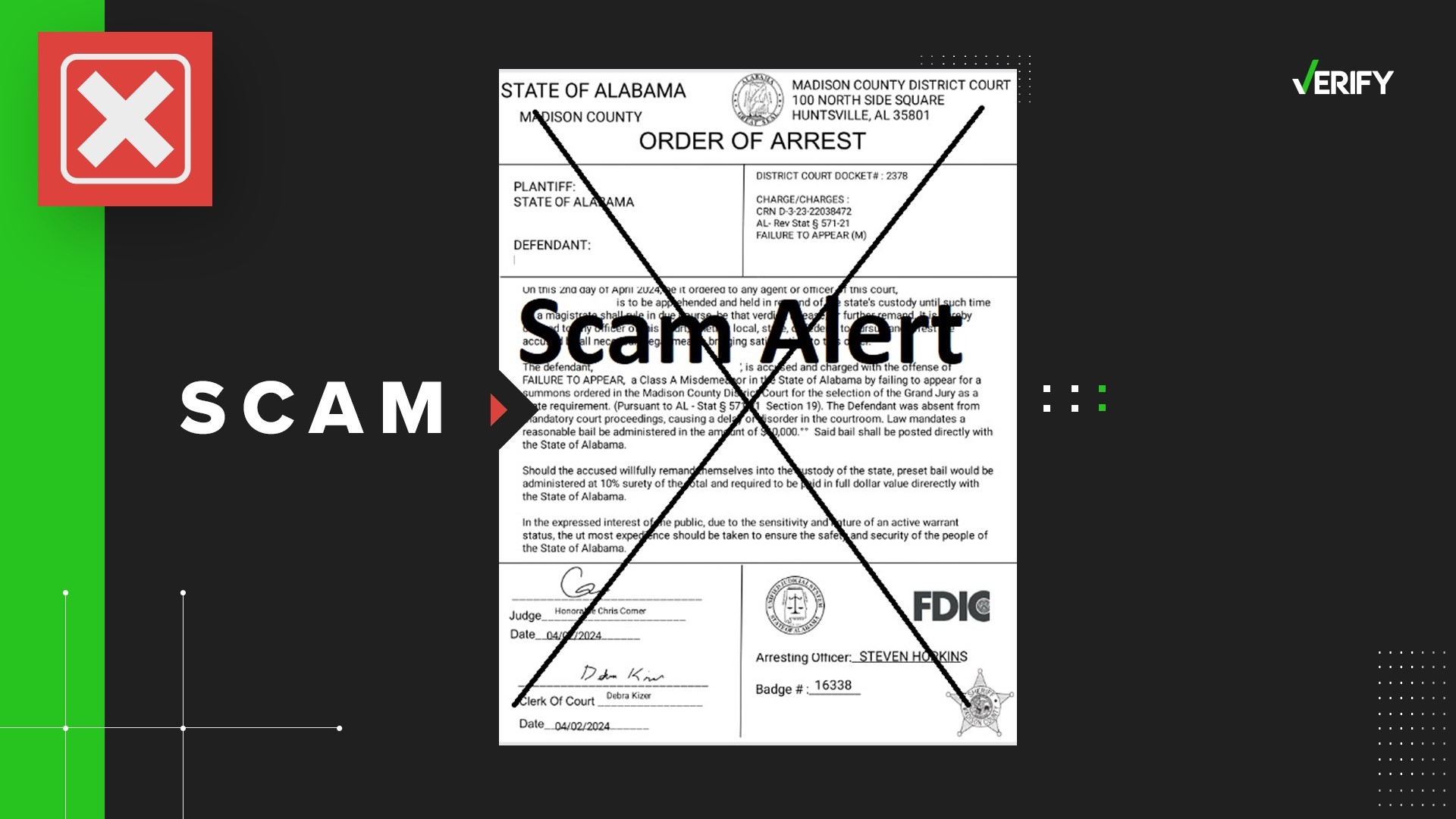HUNTSVILLE, Ala. — We get notifications from law enforcement and emergency services every day - from severe weather notifications to AMBER alerts and public safety announcements. But now, officials in Madison County are reporting an 'alert' that is alarming those who get it - and you're warned it could be an attempt to make you part with your money.
THE QUESTION
Are arrest warrants sent in the form of an image delivered by text message legitimate?
OUR SOURCES
Debra S. Kizer, Madison County Circuit Clerk for the 23rd Circuit
Alabama Rules of Criminal Procedure
THE ANSWER
No, arrest warrants "served" to you via text message are not valid, and are most likely a scam attempt.
Circuit Clerk Debra Kizer tells us this is a scam making its way throughout our area. "Fake arrest warrants or Orders of Arrest are being sent via text message to mobile devices," Kizer wrote. She sent FOX54 a sample image of one such scam image.
On the surface, the image looks like a genuine arrest warrant. It has the Great Seal of Alabama, as well as the correct address for the District Court in Huntsville. It even features the signatures purportedly of Judge Chris Comer and of Kizer herself.
Two things stand out which can alert you right away to the document not being legitimate: The area where the offense or description explaining the reasons for the warrant is cut off along the first line, which is an indicator that this portion was copy-pasted from another document. More telling, however, is the presence of the FDIC logo in the bottom-right corner of the warrant alongside the arresting officer information.
FDIC, or the Federal Deposit Insurance Corporation, is an organization focusing on banks and financial systems. The FDIC has nothing to do whatsoever with arrest warrants. The use of the FDIC logo may be used to coerce you into believing that payment is necessary to avoid arrest.
We checked with the Alabama Judicial System and their Rules of Criminal Procedure, of which Rule 3 explains that a warrant specifically "command(s) that the defendant be arrested and brought before the issuing judge." That means an officer must serve the warrant and make the arrest in person.
Rule 32(b) discusses the purpose of a summons, which "summon(s) the defendant to appear at a stated time and place within a reasonable time from the date of issuance." Noncompliance with a summons could result in an arrest, but a summons should not be confused with an arrest warrant.
In neither case are a warrant or a summons brought against a person via text message in the State of Alabama.
"Do not send money to these criminals," Kizer said. "Instead, contact the Clerk's office."
In Madison County, the number to call is (256) 532-3390.

